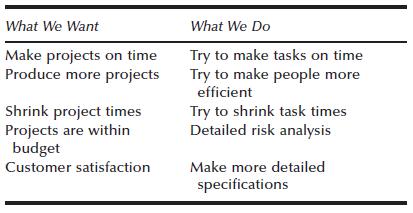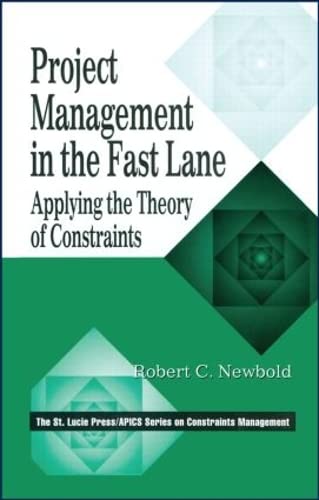We have an approach to scheduling and logistics that protects us from the effects of Murphys Law.
Question:
We have an approach to scheduling and logistics that protects us from the effects of Murphy’s Law.
The inevitability of late tasks makes this hard to swallow. There is a glimmer of hope: late tasks do not necessarily imply late projects, despite our blithe assertion in Figures 5-2 to 5-4. We will address this first miracle in Part II.
We claim that late tasks don’t necessarily imply late projects; it may also be that busy workers don’t necessarily imply more bottom-line results for the company. Let’s look at a list of what we want, and what we do to get it.

There is a trend here. The things we want tend to be globally oriented:
more projects, projects on time, satisfied customers. The things we do tend to be locally oriented: making tasks on time, making people more efficient, and so on. There is a mammoth effort involved in the kind of improvements suggested in the table above, and we know that they don’t always help.
Frequently, people work very hard to finish a task on time; they do their best;
sometimes they work extra hours. Then they discover that the next person in line is not even ready for it. They are trying for local optima, which don’t necessarily add up to global optimization. If Joe stays busy, it’s hard to predict who will be made happy, but it’s hard to make a case that keeping Joe busy would be a significant improvement for the company.
We are looking for system-wide improvements. We are looking for more, better, and faster projects. We need to make our next impossible statement:
Step by Step Answer:

Project Management In The Fast Lane Applying The Theory Of Constraints
ISBN: 102753
1st Edition
Authors: Robert C. Newbold






